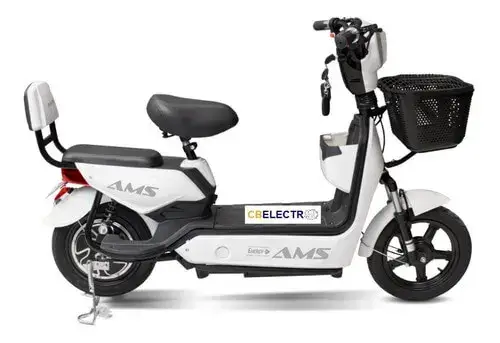A greener tour? Musicians work toward net-zero emissions on the road
Teen phenom Billie Eilish is planning an eco-friendly world tour for 2020. Coldplay, no stranger to rocking an arena, is hitting pause on touring as the band searches for a greener way.
Meanwhile, trip-hoppers Massive Attack are prepping a «super-low carbon» gig and teaming up with climate scientists to study the environmental impact of touring in hopes of drastically reducing carbon dioxide emissions.
Conversations about combating climate change are happening across different sectors and segments of society — and it’s no different for top music acts, often blasted for the environmental impact caused by globe-crossing concert tours.
But a growing wave of musicians are stepping up to declare a climate emergency and taking action to cut down their carbon footprints.
Inspired by the efforts of young activists such as Greta Thunberg and movements like Extinction Rebellion, prominent musicians are among those drastically shifting their thinking regarding climate change.
<a href=»https://twitter.com/hashtag/ClimateEmergency?src=hash&ref_src=twsrc%5Etfw»>#ClimateEmergency</a> <a href=»https://t.co/eVCs2rk1q9″>pic.twitter.com/eVCs2rk1q9</a>
—@billieeilish
«We’re talking much more about net-zero [emissions] rather than emissions reductions,» said Carly McLachlan, a director with the Tyndall Centre for Climate Change Research, who is based at the University of Manchester.
«That’s done something quite interesting to reframe [the conversation]. Now actually it’s about every sector; how does every sector get to zero?»
The Tyndall Centre has begun studying data collected by Massive Attack during its past two tours. The British band has been reflecting on how they, as musicians, can reduce their carbon emissions, McLachlan said, as well as how to inspire change across the industry.
Our decision to commission @<a href=»https://twitter.com/TyndallCentre?ref_src=twsrc%5Etfw»>@TyndallCentre</a> climate scientists to produce a roadmap to decarbonisation (for fast implementation) was inspired in part by direct actions like today’s school strikes, &the mass arrests of climate activists. <a href=»https://t.co/ZuQTzRf8wY»>pic.twitter.com/ZuQTzRf8wY</a>
—@MassiveAttackUK
The team hopes to identify «hot spots» from the band’s data and devise a toolkit of recommendations to address touring issues.
For instance, many bands have admitted that while on the road, they often end up zigzagging back and forth, since the logistics of how gigs are lined up don’t tend to be done with carbon or transport efficiency in mind.
«It’s done for different factors, [like] why you book the tour or the order that you booked it,» McLachlan explained.
Other issues she and her team will target include how audience members get to and from shows and the policies of concert venues, for everything from energy consumption to plastic usage on-site.

There have been strides made over the years, with an ever-growing chorus questioning top acts for staging behemoth world tours full of massive stadium gigs that require large crews, power-hungry setups, a fleet of big rigs, and stars jetting to each site.
And some artists are questioning the notion of buying carbon offsets, in favour of reducing their emissions in the first place.
There are now artists who eschew air travel, opting for rail instead. Stage designers create dazzling displays with LEDs instead of conventional lighting. Some promoters urge fans to carpool or take public transit to shows. A few U.K. music festivals, like Glastonbury and Boomtown Fair, have tested bundling public transit fare with entrance tickets.

But a larger, more co-ordinated effort is needed, McLachlan said, and since announcing the collaboration with Massive Attack, other music industry figures have begun reaching out to her, seeking to join the initiative and share their own data.
«This isn’t a problem that is just about individuals making different consumption choices,» she said. «This is about a much more systemic change.»
According to McLachlan, by starting with big names who are able to make specific demands on promoters, bookers and venues regarding their own tours, practices can then trickle down through the industry and «start to drive change right through the sector.»
«I’ve worked in this field for around 15 years and we’re at a particular point at the moment where it’s really getting a huge amount of media attention and it’s being discussed in kind of all elements of society. Music and culture are not exempt from that — far from it. In fact, they’re driving a lot of that discussion.»
We’re pleased to announce the first super-low carbon show – to be held in Liverpool 2020. The event will be a component of our collaboration with <a href=»https://twitter.com/TyndallCentre?ref_src=twsrc%5Etfw»>@tyndallcentre</a> climate scientists. <a href=»https://t.co/vsRJHrX9DC»>https://t.co/vsRJHrX9DC</a>
—@MassiveAttackUK
This show marks the first phase of the road to decarbonisation. All aspects of the live music experience – including audience transportation – will see a radical reduction of carbon emissions.
—@MassiveAttackUK
‘If everyone’s doing it, that’s huge’
It will take a multi-pronged approach to making touring as close to carbon neutral as possible, agrees Fay Milton, drummer for the British rock band Savages and co-founder of Music Declares Emergency.
The collective unites artists, industry professionals and organizations who have declared a climate emergency, are working toward a sustainable music industry, and are calling for immediate governmental response.
Along with Eilish and Massive Attack, supporters of Music Declares Emergencyinclude Annie Lennox, Radiohead, Robyn, Imogen Heap and Tom Morello, as well as Canadian artists Caribou and Sarah Harmer.

Systemic change takes effort from every part of the touring puzzle — including fans, said Milton.
«Maybe they’re driving to the show or travelling to different cities to go and see shows — that’s actually the biggest contributing factor to emissions from live shows. So what fans can do to help out is to [take] public transport to shows. It might not seem like a big thing … but if everyone’s doing it, that’s huge. It makes a huge difference.»
Milton also wants to see an end to today’s call-out culture, where musicians attempting to make climate-minded changes — like stepping back from touring — are instantly criticized. This negativity can have a chilling effect, she said.
«If lots and lots of artists stop touring for awhile, while we find green solutions, maybe that’s what needs to happen,» she said.
«Music has always been around; it’s not going anywhere. If it has to change, that’s not necessarily a bad thing. It keeps things fresh. It keeps things original.»
If lots and lots of artists stop touring for awhile, while we find green solutions, maybe that’s what needs to happen.– Fay Milton, Music Declares Emergency
Concertgoers heading into a Céline Dion concert in Toronto this week expressed admiration for musicians trying to reduce their ecological impact — though some said such decisions could prove bittersweet for fans.
«That’s an awesome thing.… But I think, for all the fans, it’s a little heartbreaking,» said Nicole Moniz, a music lover from Sarnia, Ont. «I love Coldplay, so I would love to see them live.»
Mark Makela, who arrived to the show with his wife and daughters, said he appreciates musicians who back up their words with action.
«You hear a lot of people preaching about being green, but to actually live it is a different story. It’s nice to see it happening.»






